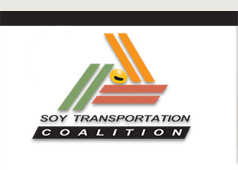 |
 |
|
| eNews • August 2014 | ||
| Promoting a Cost-Effective, Reliable and Competitive Transportation System |
||
 China lends Argentina $7.5 billion for power, rail projects
China lends Argentina $7.5 billion for power, rail projects
Argentina recently signed deals to borrow $7.5 billion from China at a time when the Latin American country cannot tap global capital markets because of disputes over unpaid debt.
Among the deals signed, Argentine President Cristina Fernandez and her Chinese counterpart, Xi Jinping, agreed on a loan for $4.7 billion from the China Development Bank for the construction of two hydroelectric dams in Patagonia. China Gezhouba Group Corp and Argentina's Electroingenieria SA won contracts last year to build the two dams, which will have a combined generating capacity of 1,740 megawatts.
The Chinese bank also granted a $2.1 billion loan to help finance a long-delayed railway project that would make it more efficient to transport grains from Argentina's agricultural plains to its ports.
"It's a day we can define as foundational in the relations between our two countries," Fernandez said after signing the deals.
China is Argentina's second-largest trading partner after neighbor Brazil. In 2013, Argentina's trade deficit with the Asian country increased more than 20 percent to $5.8 billion.
Argentina is the world's third-largest exporter of soy and corn. China is the main buyer of its soybeans.
Xi, China's first president to visit Latin America's third-largest economy in a decade, arrived in the capital city of Buenos Aires on Friday after participating in a summit of emerging economies of the BRICS nations - Brazil, Russia, India, China and South Africa - in Fortaleza, Brazil, earlier this week.
He also signed a three-year agreement for an $11 billion swap operation between the central banks of Argentina and China that will let the Latin American country pay for Chinese imports with the yuan currency.
"The exchange will mainly serve to facilitate investments in the currency of the country providing the funds and to strengthen the level of international reserves," the Argentine central bank said in a statement.
Argentina signed a similar deal with China in 2009.
The central bank could ask for the total or partial disbursement of the 70 billion yuan in exchange for pesos to invest it, or to exchange it to dollars to fuel its reserves, said an Argentine central bank official, who spoke on condition of anonymity.
Fernandez's government has imposed stringent import and capital controls to safeguard dwindling foreign reserves, which it needs to pay its debts. It has been virtually shut out of global credit markets since staging a massive 2002 default.
Hopes that Argentina's government might access markets again soon hinge on the country reaching a deal with holdout creditors who rejected its debt restructuring in 2005 and 2010.
Fernandez said the deal between the two central banks could offer "stability in exchange rates at the moment we are, as a country, suffering speculative attacks by vulture funds."
Source: Reuters
Soy Transportation Coalition |
|
